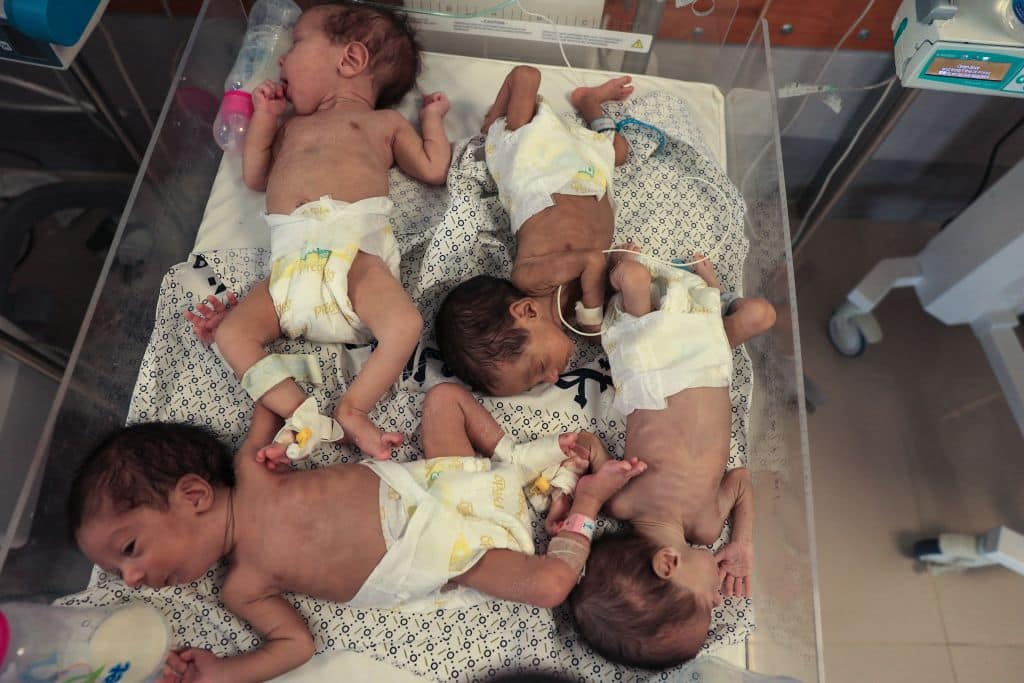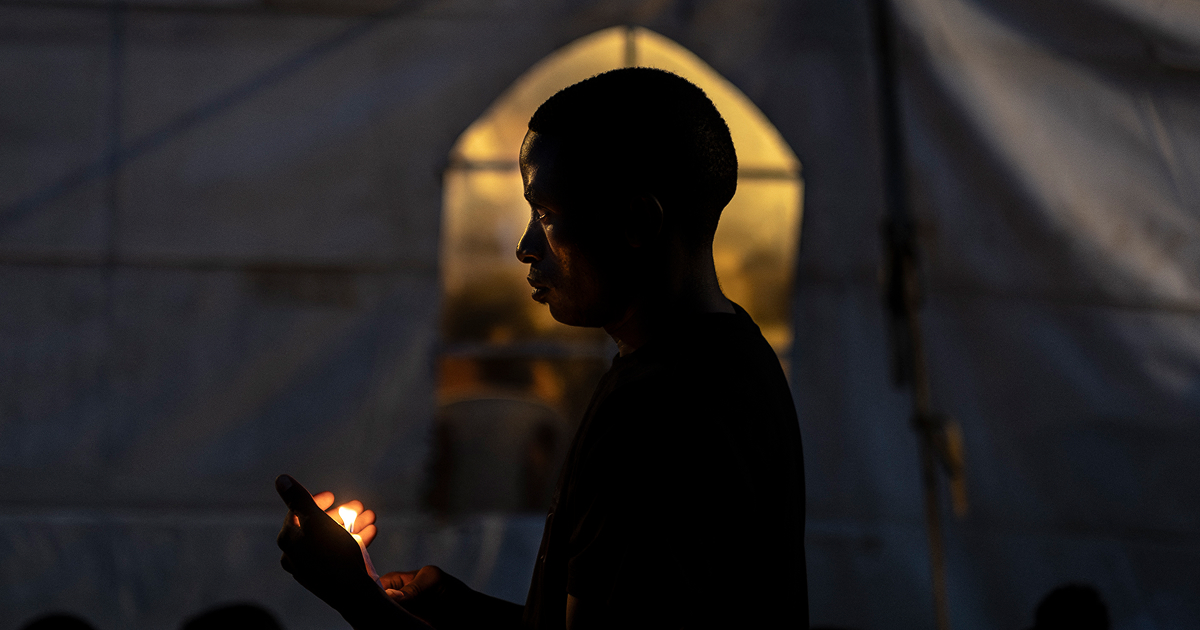The Catholic Bishops' Conference of England and Wales has welcomed the Vatican’s declaration on Human Dignity for highlighting an issue that lies at the heart of the mission of the Church and for highlighting the "grave violations" of human dignity that scar the modern world.
The main novelty of the document – which is the fruit of five years’ work – is the inclusion of a number of key themes from the recent papal magisterium that accompany the bioethical ones, say the bishops' conference. In the “non-exhaustive” list that is offered, abortion, euthanasia and surrogate motherhood are listed as violations of human dignity alongside war, poverty and human trafficking.
By doing this, the bishops highlight, the new document contributes to overcoming the dichotomy that exists between those who focus exclusively on beginning-and-end-of-life issues, while forgetting so many other attacks against human dignity and, conversely, those who focus only on defending the poor and migrants while forgetting that life must be defended from conception to its natural conclusion.
The bishops then go on to list the main categories of violations of human dignity happening in the world today, quoting the related texts from the new declaration .
Poverty, war and human trafficking
The first issue mentioned is poverty, “one of the greatest injustices in the contemporary world”.
Then there is war, “another tragedy that denies human dignity”, and always a “defeat of humanity”, to the point that “it is very difficult nowadays to invoke the rational criteria elaborated in earlier centuries to speak of the possibility of a 'just war'.”
The Declaration also discusses the “travail of migrants”, whose “lives are put at risk because they no longer have the means to start a family, to work, or to feed themselves”.
The document then dwells on “human trafficking”, which is taking on “tragic dimensions” and is described as “vile activity, a disgrace to our societies that claim to be civilised”. The Declaration invites “exploiters and clients” to make a serious examination of conscience.
Similarly, the bishops note, the document calls for the fight against phenomena such as “the marketing of human organs and tissues, the sexual exploitation of boys and girls, slave labour, including prostitution, the drug and weapons trade, terrorism, and international organised crime”.
The document also mentions sexual abuse, which leaves “deep scars in the hearts of those who suffer it”: these are “sufferings that can last a lifetime and that no repentance can remedy”.
Discrimination and violence against women are then discussed. Among the latter are listed “coercive abortions, which affect both mother and child, often to satisfy the selfishness of males” and “the practice of polygamy”. Femicide is also condemned.
Abortion and surrogacy
The condemnation of abortion is strong: “Among all the crimes which can be committed against life, procured abortion has characteristics making it particularly serious and deplorable”, and reference is made to the fact that “defence of unborn life is closely linked to the defence of each and every other human right”.
The Declaration’s rejection of surrogacy, by means of which “the immensely worthy child becomes a mere object”, is also strong, the bishops note. This is a practice that “represents a grave violation of the dignity of the woman and the child…A child is always a gift and never the basis of a commercial contract".
The list goes on to mention euthanasia and assisted suicide, confusingly defined by some laws as ”death with dignity”. The document stresses that “suffering does not cause the sick to lose their dignity, which is intrinsically and inalienably their own”.
The Declaration then speaks of the importance of palliative care and the avoidance of “aggressive treatments or disproportionate medical procedures”, reaffirming that “Life is a right, not death, which must be welcomed, not administered”.
A further serious violation of human dignity is the marginalisation of differently-abled persons.
Gender theory
The document begins the section on this topic by stressing that “every sign of unjust discrimination” against homosexual persons “is to be carefully avoided, particularly any form of aggression and violence”.
It is “contrary to human dignity”, the Declaration says, that in some places “not a few people are “imprisoned, tortured and even deprived of the good of life solely because of their sexual orientation”.
Gender theory, which is “extremely dangerous since it cancels differences in its claim to make everyone equal”, is then criticised.
The Church, the document reminds readers, recalls that “human life in all its dimensions, both physical and spiritual, is a gift from God. This gift is to be accepted with gratitude and placed at the service of the good. Desiring a personal self-determination, as gender theory prescribes … amounts to a concession to the age-old temptation to make oneself God”.
Gender theory “intends to deny the greatest possible difference that exists between living beings: sexual difference”.
Therefore, ”all attempts to obscure reference to the ineliminable sexual difference between man and woman” are “to be rejected”.
Sex change is also questioned since it “risks threatening the unique dignity the person has received from the moment of conception”. This does not mean, however, excluding the possibility that “a person with genital abnormalities that are already evident at birth or that develop later may choose to receive the assistance of healthcare professionals to resolve these abnormalities”.
Digital violence
The final item on the list is “digital violence”. “New forms of violence are spreading through social media”, the document highlights, such as cyberbullying, and “the internet is also a channel for spreading pornography and the exploitation of persons for sexual purposes or through gambling”.
The Declaration ends by urging that “respect for the dignity of the human person beyond all circumstances be placed at the centre of the commitment to the common good and at the centre of every legal system”.
The full text of the Declaration “Dignitas infinita” can be found on the Holy See website.
Photo: Premature babies, evacuated from Gaza City's Al Shifa hospital amid ongoing battles between Israel and the militant group Hamas, receive care ahead of their transfer from a hospital in Rafah in the southern Gaza Strip to Egypt, 20 November 2023, Twenty-nine premature babies arrived in Egypt on November 20, Egyptian media said, after their evacuation from Gaza's largest hospital which has become a focal point of Israel's war with Hamas. (Photo by SAID KHATIB/AFP via Getty Images.)
The Catholic Bishops' Conference of England and Wales has welcomed the Vatican’s declaration on Human Dignity for highlighting <a href="https://www.cbcew.org.uk/bishops-conference-welcomes-vatican-declaration-on-human-dignity/"><mark style="background-color:rgba(0, 0, 0, 0)" class="has-inline-color has-vivid-cyan-blue-color">an issue that lies at the heart of the mission of the Church</mark></a> and for highlighting the "grave violations" of human dignity that scar the modern world.
The main novelty of the document – which is the fruit of five years’ work – is the inclusion of a number of key themes from the recent papal magisterium that accompany the bioethical ones, <a href="https://www.cbcew.org.uk/new-vatican-document-lists-grave-violations-of-human-dignity/"><mark style="background-color:rgba(0, 0, 0, 0)" class="has-inline-color has-vivid-cyan-blue-color">say</mark></a> the bishops' conference. In the “non-exhaustive” list that is offered, abortion, euthanasia and surrogate motherhood are listed as violations of human dignity alongside war, poverty and human trafficking.
By doing this, the bishops highlight, the new document contributes to overcoming the dichotomy that exists between those who focus exclusively on beginning-and-end-of-life issues, while forgetting so many other attacks against human dignity and, conversely, those who focus only on defending the poor and migrants while forgetting that life must be defended from conception to its natural conclusion.
The bishops then go on to list the main categories of violations of human dignity happening in the world today, quoting the related texts from the new declaration .
<strong>Poverty, war and human trafficking</strong>
The first issue mentioned is poverty, “one of the greatest injustices in the contemporary world”.
Then there is war, “another tragedy that denies human dignity”, and always a “defeat of humanity”, to the point that “it is very difficult nowadays to invoke the rational criteria elaborated in earlier centuries to speak of the possibility of a 'just war'.”
The Declaration also discusses the “travail of migrants”, whose “lives are put at risk because they no longer have the means to start a family, to work, or to feed themselves”.
The document then dwells on “human trafficking”, which is taking on “tragic dimensions” and is described as “vile activity, a disgrace to our societies that claim to be civilised”. The Declaration invites “exploiters and clients” to make a serious examination of conscience.
Similarly, the bishops note, the document calls for the fight against phenomena such as “the marketing of human organs and tissues, the sexual exploitation of boys and girls, slave labour, including prostitution, the drug and weapons trade, terrorism, and international organised crime”.
The document also mentions sexual abuse, which leaves “deep scars in the hearts of those who suffer it”: these are “sufferings that can last a lifetime and that no repentance can remedy”.
Discrimination and violence against women are then discussed. Among the latter are listed “coercive abortions, which affect both mother and child, often to satisfy the selfishness of males” and “the practice of polygamy”. Femicide is also condemned.
<strong>Abortion and surrogacy</strong>
The condemnation of abortion is strong: “Among all the crimes which can be committed against life, procured abortion has characteristics making it particularly serious and deplorable”, and reference is made to the fact that “defence of unborn life is closely linked to the defence of each and every other human right”.
The Declaration’s rejection of surrogacy, by means of which “the immensely worthy child becomes a mere object”, is also strong, the bishops note. This is a practice that “represents a grave violation of the dignity of the woman and the child…A child is always a gift and never the basis of a commercial contract".
The list goes on to mention euthanasia and assisted suicide, confusingly defined by some laws as ”death with dignity”. The document stresses that “suffering does not cause the sick to lose their dignity, which is intrinsically and inalienably their own”.
The Declaration then speaks of the importance of palliative care and the avoidance of “aggressive treatments or disproportionate medical procedures”, reaffirming that “Life is a right, not death, which must be welcomed, not administered”.
A further serious violation of human dignity is the marginalisation of differently-abled persons.
<strong>Gender theory</strong>
The document begins the section on this topic by stressing that “every sign of unjust discrimination” against homosexual persons “is to be carefully avoided, particularly any form of aggression and violence”.
It is “contrary to human dignity”, the Declaration says, that in some places “not a few people are “imprisoned, tortured and even deprived of the good of life solely because of their sexual orientation”.
Gender theory, which is “extremely dangerous since it cancels differences in its claim to make everyone equal”, is then criticised.
The Church, the document reminds readers, recalls that “human life in all its dimensions, both physical and spiritual, is a gift from God. This gift is to be accepted with gratitude and placed at the service of the good. Desiring a personal self-determination, as gender theory prescribes … amounts to a concession to the age-old temptation to make oneself God”.
Gender theory “intends to deny the greatest possible difference that exists between living beings: sexual difference”.
Therefore, ”all attempts to obscure reference to the ineliminable sexual difference between man and woman” are “to be rejected”.
Sex change is also questioned since it “risks threatening the unique dignity the person has received from the moment of conception”. This does not mean, however, excluding the possibility that “a person with genital abnormalities that are already evident at birth or that develop later may choose to receive the assistance of healthcare professionals to resolve these abnormalities”.
<strong>Digital violence</strong>
The final item on the list is “digital violence”. “New forms of violence are spreading through social media”, the document highlights, such as cyberbullying, and “the internet is also a channel for spreading pornography and the exploitation of persons for sexual purposes or through gambling”.
The Declaration ends by urging that “respect for the dignity of the human person beyond all circumstances be placed at the centre of the commitment to the common good and at the centre of every legal system”.
The full text of the <a href="https://www.vatican.va/roman_curia/congregations/cfaith/documents/rc_ddf_doc_20240402_dignitas-infinita_en.html" target="_blank" rel="noreferrer noopener"><mark style="background-color:rgba(0, 0, 0, 0)" class="has-inline-color has-vivid-cyan-blue-color">Declaration “Dignitas infinita” can be found on the Holy See website</mark></a>.
<em>Photo: Premature babies, evacuated from Gaza City's Al Shifa hospital <em>amid ongoing battles between Israel and the militant group Hamas</em>, receive care ahead of their transfer from a hospital in Rafah in the southern Gaza Strip to Egypt, 20 November 2023, Twenty-nine premature babies arrived in Egypt on November 20, Egyptian media said, after their evacuation from Gaza's largest hospital which has become a focal point of Israel's war with Hamas. (Photo by SAID KHATIB/AFP via Getty Images.)</em>


















